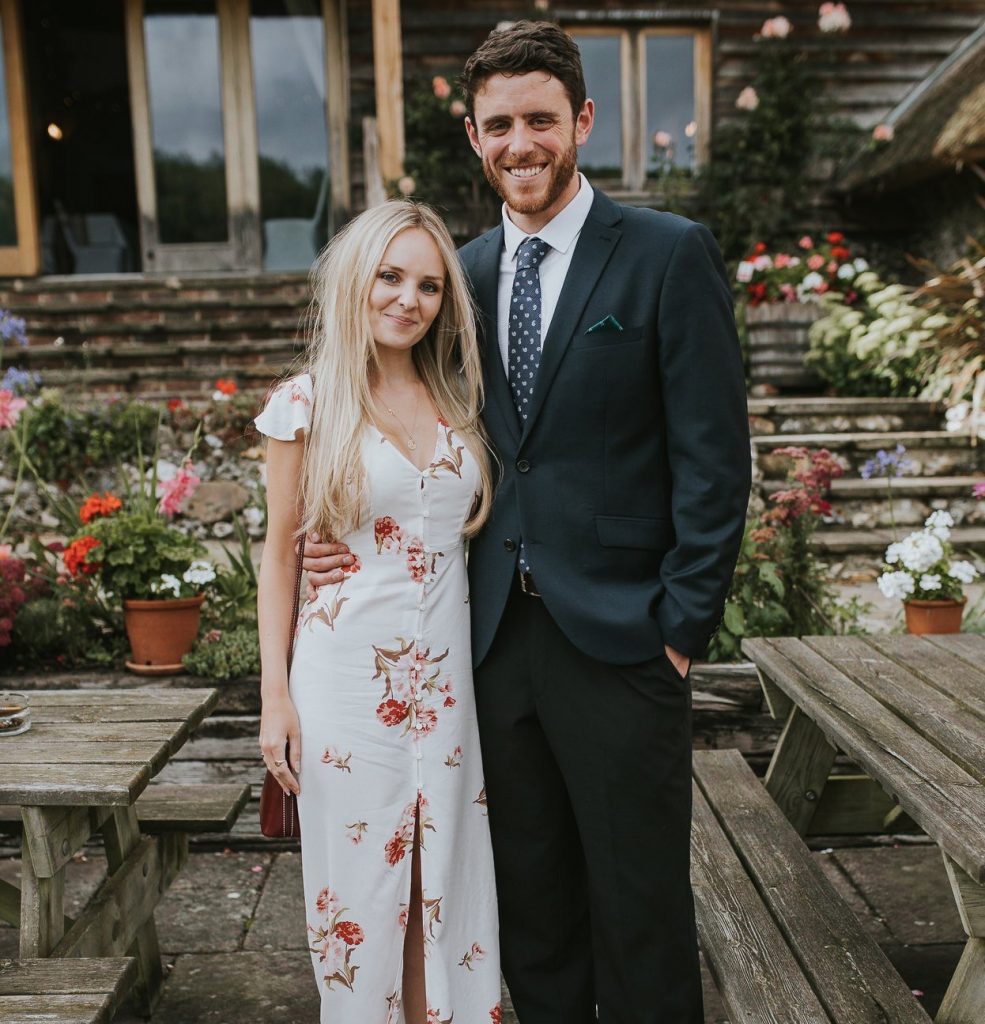Anyone guilty of killing an emergency services worker to be jailed for life
https://harperslaw.co.uk/wp-content/uploads/2020/08/LissieHarper.mov
We are calling for #HarpersLaw. The creation of this law – spearheaded by Lissie Harper, the widow of hero PC Andrew Harper – would mean anyone found guilty of killing a police officer, firefighter, nurse, doctor, prison officer or paramedic would be jailed for life.



[wpedon id=119]
Q&A with Lissie Harper about Harper’s Law
Here Lissie talks about her campaign to push for tougher sentences for those who kill emergency services workers.
You’re campaigning for ‘Harper’s Law’ – what do you hope to achieve?
Harper’s Law will mean a person found guilty of killing a police officer, firefighter, nurse, doctor, paramedic or prison officer as a direct result of a crime they have committed would be jailed for life. This means that a life sentence would be imposed, asking for a minimum term in prison. We are delighted to say Harper’s Law – and what those terms would look like – are now being discussed with the Home Office. In Ireland they have a specific capital offence for murdering a Gardai or a prison officer, with a mandatory minimum jail term of 40 years and that is being looked at. These are the conversations we want to be having to protect our emergency services workers. A strong deterrent and an appropriate punishment for such a heinous crime.
Why is this so important to you?
I remember sitting in court when the verdict came in against those that killed Andrew and feeling totally helpless. I remember feeling so let down by our justice system and the laws that we have in place. It was then, and when it came to sentencing, that I knew that something had to change.
Why is this law needed now?
Emergency services workers require extra protection… They are put at risk and into the depths of danger on a regular basis on behalf of society. That protection is what we are seeking to achieve with Harper’s Law. I feel so strongly, now more than ever, that we need to give them that protection. If this cannot be in a physical way – with larger numbers, better pay and sufficient equipment – then the least we can do is to make sure that, if they should sadly pay the ultimate price, justice is served as it should be. That the families of those in this heartbreaking position in the future will not have to endure such injustice.
Do you feel that emergency services workers are being let down?
Over many years of being the partner of a police officer, a frontline hero, I often felt that worry that we all do when they go off to work, knowing the true dangers that they face. Even the 10 or so years since Andrew joined the force, the changes in how officers are viewed, protected and the resources they are given, have massively changed. I know that this is the case not only in the police force, but that nurses, doctors and members of the fire brigade are all understaffed and under-appreciated. Day after day they look danger in the eyes and carry on regardless. They put themselves in harm’s way to protect the public, so we need to give something back to show we support them.
How are you moving forwards with the campaign?
I am delighted to say that following face to face meetings with Home Secretary Priti Patel, Justice Secretary Robert Buckland and Shadow Home Secretary Nick Thomas-Symonds we have achieved cross party support for Harper’s Law. Harper’s Law will be for everyone. And cross-party support will mean there will not be an ensuing political battle. It’s something we all want and something we all can work towards together. We want to continue to discuss the finer details of creating a law that works and makes sense, and I am more determined than ever to do this. I know this may not be an easy and straightforward process, and this is why I am happy to begin discussions into what we can do to address these injustices and to create something that our British public can be proud of. I am also looking forward to meeting up with other unions and staff associations representing emergency services workers. Together we will achieve Harper’s Law.
What happens next?
The details of what Harper’s Law will look like are now being worked on by Civil Servants and the Police Federation of England and Wales. I am incredibly grateful to have the backing of the Federation – Andrew’s former colleagues – in making this happen. Now also having the support of the Government and those on Opposition benches means that if we all work together we can achieve Harper’s Law, which would be a fitting legacy to Andrew. We know this won’t happen overnight and now wait for the next steps. But make no mistake, I will not allow this to be kicked into the long grass. We need to properly protect our protectors. And I promise I won’t be shying away from the limelight to keep the pressure on those in power to make this happen.
What has the public reaction been like?
I’ve been overwhelmed with the amount of support I’ve received throughout this whole journey, but also for Harper’s Law. It’s so clear to see that the people of our country are unhappy with the way we deal with criminals – I’ve been swamped with messages and words of agreement over the despicable outcome following the trial. We all want change, not a small minority of people, but hundreds of thousands of people hope to see this law accomplished.
How can people help?
We’ve had so much support from everyone, from members of the public. I can’t tell you how many messages I’ve had from people saying, ‘yes, this needs to happen’. I’ve had a lot of messages saying, ‘what can we do, how can we help? We support Harper’s Law’. We would ask people to please sign and share the #HarpersLaw petition: https://www.change.org/HarpersLaw. Use the hashtag #HarpersLaw and lobby your local MPs.
Contact Us Now

Thames Valley PolFed
2 hours ago
It’s been a busy few weeks for the #HarpersLaw campaign – achieving political consensus on there bei…
Read More


Thames Valley PolFed
13 hours ago
“What Lissie is trying to do is so important as this should never be allowed to happen again to othe…
Read More

Thames Valley PolFed
15 hours ago
RT @LabourSJ: It was a privilege to meet Lissie with @NickTorfaen and @HollyLynch5 to discuss the n…
Read More

Thames Valley PolFed
15 hours ago
RT @POAUnion: This is good news with cross party support and the POA will campaign with Lissie and t…
Read More

Thames Valley PolFed
18 hours ago
RT @NickTorfaen: It was an honour to meet Lissie with @LabourSJ & @HollyLynch5. Her bravery is i…
Read More

Thames Valley PolFed
20 hours ago
Lissie Harper gives her reaction to receiving cross party support for #HarpersLaw in the @HouseofCom…
